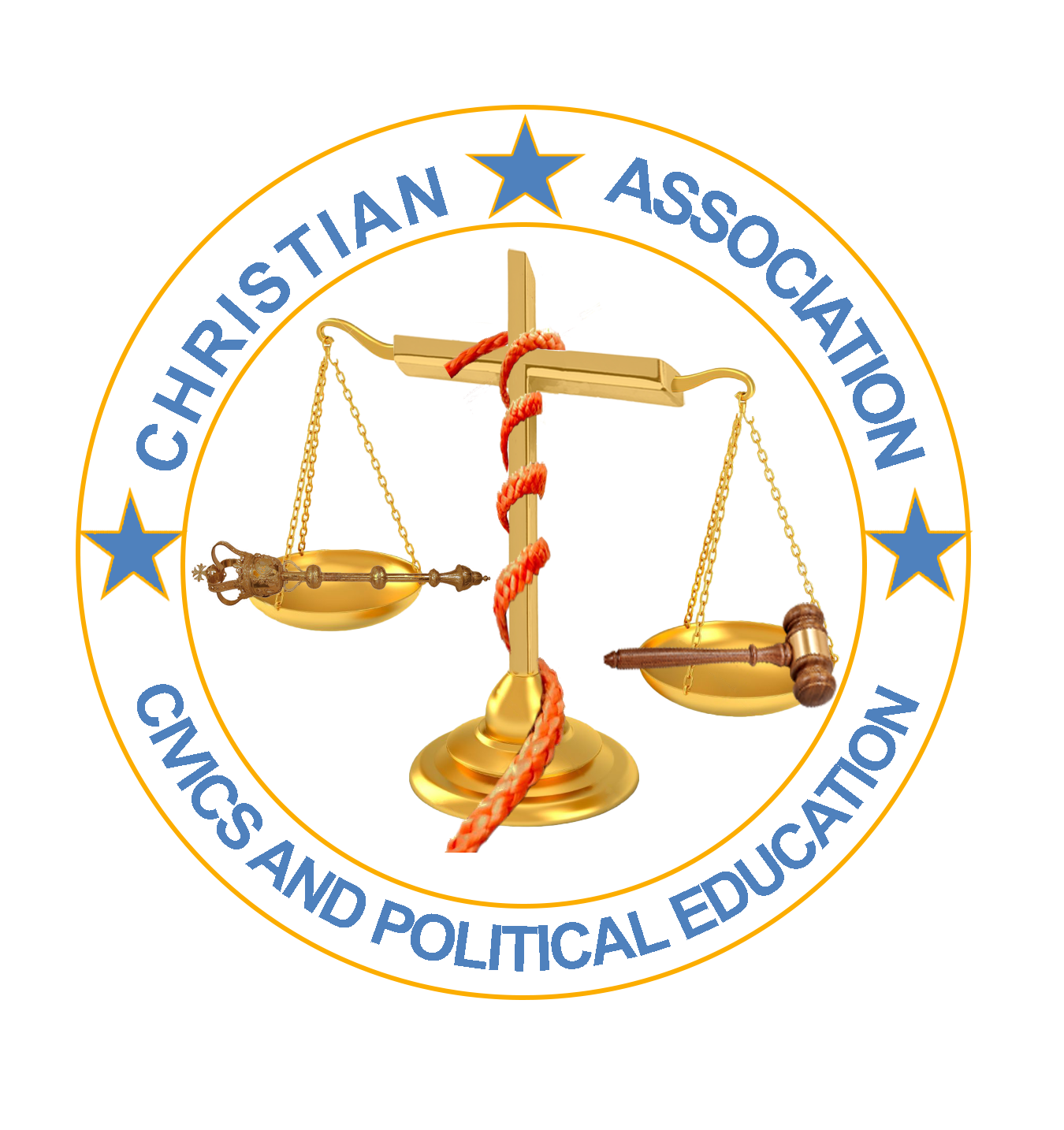In 2019 the Christian Association for Civics and Political Education was registered for the purpose of educating Christians on political principles, their civic roles in society and becoming public leaders, all based on Christian principles and ignoring the issue of “denomination”.
There is much controversy regarding Christians in politics. The biblical scripture “we are in this world but not of this world” has been erroneously interpreted to mean Christians are supposed to operate in a bubble in this world, moving robotically everyday throughout a degrading social environment without ever engaging the wickedness of the world.
We have adopted spiels such as “I’m not getting involved in it because it’s not Christian” (whether we learnt it from others or whether it conveniently serves as a cop-out from having to confront evil; sometimes this excuse is beneficial because speaking against the evil has the potential to threaten our own financial benefits and many would rather ignore the evil than to risk losing its financial reward). In other instances, we just don’t know what to say, how to say it or what to do about what we see even if we wanted to address the evil.
“Knowledge is key“
We’ve heard this since the days of our youth. Yet, as adults we greatly lack the very knowledge and understanding required to utilize the power and authority that we have, just as any other employer or manager would utilize in the execution of their duty and with the power and authority that is vested in them.
Is political engagement really anti-Christian? No. That teaching is a lie straight from Hell that has been taught for many centuries and decades by the very powers Christ himself came to change: the religious political system.
Christ’s favour among the people frightened the Pharisees. They saw that they were losing grip on their power and influence.
“What can we do?” they asked. “This man is doing many miraculous signs. If we let Him keep on doing this, everyone will believe in Him. Then the Romans will come. They will take away our temple and our nation.” – John 11:47
The Pharisees were worried about one thing: losing the power they had. As a result of their desire to maintain this power they successfully planned to kill Him (although they were completing God’s perfect plan for salvation).
What are we as Christians supposed to do today? Rebuke evil. How do we do that? We preach the gospel of truth, we counsel those who are weak and we take and keep dominion until Christ comes to deliver us.
Why do we insist that Christians are supposed to be civic and political leaders?
Because the Bible tells us so. Joseph, Daniel, David, Solomon, Nehemiah, Deborah are examples of political leaders and the Centurion is a wonderful example that political or social positions do not preclude a person from being in service to God, but that service to God in a high position is an honourable thing.
Perhaps one of the best examples in a pure human form of why Christians should be in political positions is the story of Josiah who took over a depraved nation that under his Godly leadership was healed and the people rejoiced because they turned back to God, proving that “When the godly are in authority, the people rejoice. But when the wicked are in power, they groan” (Prov. 29:2 NLT). The First and Second Books of Kings give multitudinous examples of godly versus ungodly leadership and the consequences on the nation of Israel.
Being in a powerful position does not mean you are not operating in a Godly manner. As a matter of fact, you are then in a position to influence other leaders and subordinates through Godly principles and in a position to help the nation to flourish by offering aid and protection to the most unfortunate, which are often overlooked by the secular authorities.
There was a time when political leaders/kings did not make decisions without enquiring of the Man of God who had the charge to advise him (see the story of Jehoshaphat in 1 Kings 22). Christ’s crucifixion didn’t eliminate this responsibility; Christ’s crucifixion empowered us to do so. “…greater things will you do”, said Christ, but He said this without limitation. His own brother Jude gave us prudent advice: we are to contend for the faith (Book of Jude, verse 3).
Using knowledge to stand for Kingdom righteousness
As we see, the word of God is being attacked from all corners and in all nations in the world. There are those who have taken up the position to defend the word by becoming politically involved in everyday law-making decisions. Their calling is not to preach the word, but to engage the world in such a way as to allow the word to be preached. Their calling is to teach Christians to be strong and courageous in a vicious world and to prepare their minds to stand against the world until the second coming of Christ. This is our goal here at the Christian Association for Civics.
We do not suggest that anything we teach or preach will stop evil from progressing or even stopping prophetic fulfillment; we are very cognizant that the issues we face are a part of prophesy and that these issues must fulfil in order for the second coming of Christ to happen. But the fact that prophesy must fulfil does not give us the right to give up the fight for good…after all no one I know has stopped eating food or drinking water saying that “Christ is coming so I might as well stop eating”. One day Christ will come to deliver us from this world. Until then it our responsibility to contend for the faith in every which way we can (be encouraged by Jude).
We look forward to engaging with you in our Christian leadership programs, community civic engagements and honouring Christ through our public office leaders. We leave you with the prayer Christ offered up for his disciples:
“My prayer is not that you take them out of the world but that you protect them from the evil one. They are not of the world, even as I am not of it. Sanctify them by the truth; your word is truth. As you sent me into the world, I have sent them into the world. For them I sanctify myself, that they too may be truly sanctified. My prayer is not for them alone. I pray also for those who will believe in me through their message, that all of them may be one, Father, just as you are in me and I am in you. May they also be in us so that the world may believe that you have sent me.” (John 17:15-21).

